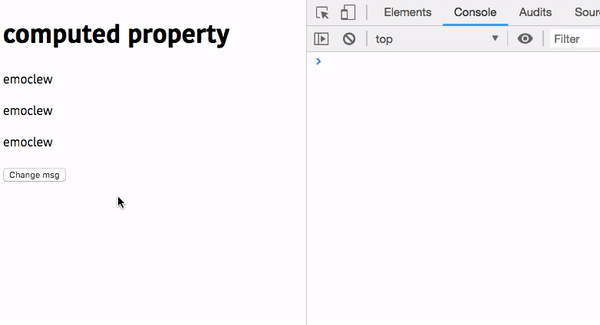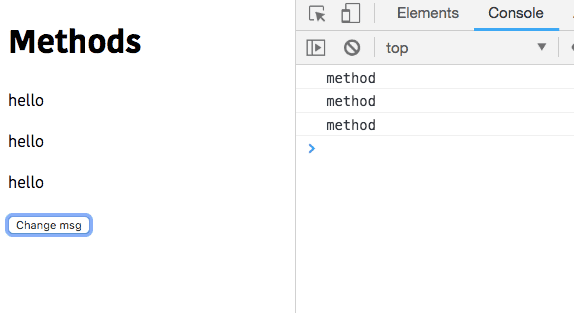Computed properties vs Methods in vuejs
In this tutorial, we are going to learn about difference between Computed properties vs methods in vue.js
Computed properties
- In vuejs Computed properties helps us to run the complex logic.
- Computed properties are cached by the vue so that it only revaluates the logic if its underlying data property changes.
example:
<template>
<div id="app">
<h1>computed property</h1>
<p>{{ reverseMsg }}</p>
<p>{{ reverseMsg }}</p>
<p>{{ reverseMsg }}</p>
<button @click="msg = 'hello';">Change msg</button> </div>
</template>
<script>
export default {
data: function() {
return {
msg: "Learn vuejs"
};
},
computed: {
reverseMsg: function() {
console.log("computed");
return this.msg
.split(" ")
.reverse()
.join(" ");
}
}
};
</script>In this example, we have created a computed property called reverseMsg where we used it three times in the <template> tag.
Change msg button : It is used to Change the msg.
Let’s test it now.

Have you seen when we click on a change msg button our reverseMsg computed property function is only run once and other two times it accessed the result from the cache without running the function again.
Methods
- In vuejs methods helps us to create functions where it can accept arguments.
- Methods are used to create event handler functions.
Example:
<template>
<div id="app">
<h1>Methods</h1>
<p>{{ reverseMsg(msg) }}</p>
<p>{{ reverseMsg(msg) }}</p>
<p>{{ reverseMsg(msg) }}</p> <button @click="msg = 'hello';">Change msg</button> </div>
</template>
<script>
export default {
data: function() {
return {
msg: "Welcome"
};
},
methods: {
reverseMsg: function(str) {
console.log("method");
return str
.split(" ")
.reverse()
.join(" ");
}
}
};
</script>In this example,we used the reverseMsg function multiple times in our template so that it revaluates the value every time we run a function but in computed properties the result is cached and it doesn’t need to revaluate every time.



